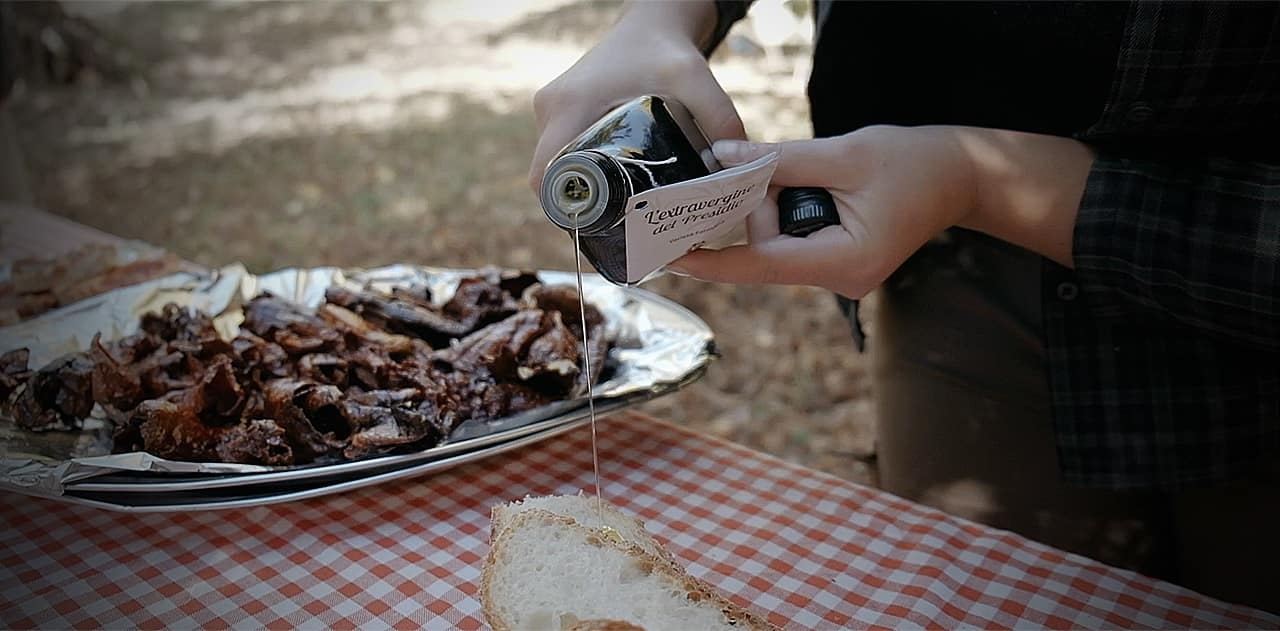Preserving a four-generation production to enhance one of Lucania’s native cultivations: this was Micele agricultural company’s choice.
Despite the fact that it requires a great deal of effort, there are some brave farmers who decided to
protect the immense heritage of olive trees which outlines the borders of the Italian regions, and which is increasingly connected not only to the protection of ecotypes, but also to secular and millenary trees widespread throughout Italy. In this multifaceted scenario which dominates the entire Country, a family in Senise (Basilicata) has been producing olive oil for four generations using the Farasana olive, an autochthonous variety typical of the Serrapotamo, the Sinni and the Sarmento areas. This particular kind of olive, which is big, is ideal for the production of oil as well as as table olive.
Back to the origins
Lorenzo Micele, owner of the agricultural company that bears his name, decided to “ venture into this long shot ”, says while smiling, exactly because he loves challenges. That is why back in 2008, he decided to come back to his family’s region and to take over his family’s farmland. Born and raised in Emilia-Romagna, Lorenzo studied and became a professional chemist, but decided to come back to Basilicata because “this soil, this landscape should not be divided from the Farasana olive, since it has been here long before people arrived).”
In 1912, Lorenzo’s great-grandfather planted the first trees, which have been maintained for generations by his grandfather and his father, Nicola. Now, it is Lorenzo’s turn.
In his father’s memories, the origin of the tree could be found in Arabian populations which had imported and planted it nearly 700 years ago, making this tree a symbol of Basilicata’s identity and biodiversity.
Slow Food Presidium
Today the Farasana olive is part of a bigger project: The national Presidium, which enhances the value of the environment, the landscapes, the health and the economy of the Italian extra virgin olive oil. This national project gathers together all Italian EVOO producers who are addressing the same critical issues throughout all the different production areas.
In the area of Senise, whose farmland are surrounded by badlands, Micele agricultural company is home to at least ten olive tree varieties: from the table ones, like the ‘’Uovo di piccione’’ and the “Sant’Agostino”, to the ones used for the production of oil, among which stand out the “Coratina”, the “Frantoio”, the “Pendolino” and the “Ogliastro”. The olive grove is composed by historic plants, aged from 70 to 100 years, and secular plants, reaching an age of over 500 years old.
The energy of the soil
Micele agricultural Company gives considerable attention to the soil.
“The land, the soil”- says Lorenzo- “is not to be considered as a mere place to plant trees: it is alive, it must be guarded, it must be nourished and protected from erosions.”
For this particular reason, although the rugged area, which still bears the signs of past ages landslides, among the olive tree rows there have been installed watering systems to avoid the loss of natural nutrients in soil, the main source of nourishment for the trees. For this company, organic farming has always been the only option, even though they were only given the organic certification recently, when the brand was created. However, even when his great-grandfather was maintaining the farmland, the genuineness of the production processes played a central role in the cultivation of olives.
Sustainable production
Choosing to produce and monetize olives is the main goal around which the company policy revolves. For this reason, no part of the olive goes wasted: Micele agricultural company uses production residues (damaged olives, olive residues) to make handmade soap, from the cheaper and less articulated pure olive oil soap to the ones enriched with other fine fats and scented with essential oils. Likewise, the finest grained olive wood resulting from pruning is reused to make lathe-turned handicrafts. On Micele’s farmland, other ancient varieties of fruits are also cultivated, such as walnuts, figs, pomegranates, prickly pears, jujubes, apples, pears, sorbs, persimmons, quinces, grapes, cherries, almonds, prunes, mulberries and apricots, and some of them are harvested and transformed into jams with zero food miles.
Lorenzo Micele | Oil producer






